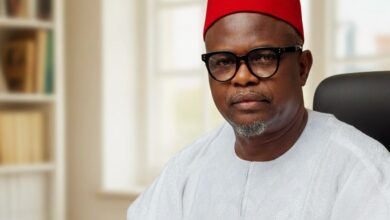Japa Syndrome

Iffy Iwuoha
Migration plays an essential role in sustaining the ecosystem. It is human nature to be peripatetic, a wheel in endless motion, and that is the truth of the matter.
The ‘Japa Syndrome’ a common Nigeria slang for emigration is a reality that gained ground long ago in the mid 70’s /80’s, as a result of severe economic instability and military excesses, causing not just Nigerian, but also Chinese youths, to sojourn Westward (United States and United Kingdom) in search of greener pastures. These migrants, who over time became fully incorporated into the foreign system, account for a large percentage of the labour force, earning well over $30billion annually as compared to what they earned back home.
Since 2020, the ideology has taken a different dimension as statistics records an upward surge in movement of the Nigerian population in search for not just greener pastures, but a conducive and organised state with better living conditions.
Skilled Nigerians are checking out in droves, to the western world, where their certificates, locally acquired knowledge and skills, which are harnessed and spun into profitable deposits that will only serve the host countries with no plan or second thought of returning home.
The reality is that in a country where the ratio of doctor per patient is 1:5,000 against the World Health Organisation’s recommendation of 1:600, about 8,737 doctors who obtained their degrees in Nigeria are currently practising in the UK. More so, according to the UK General Medical Council, 862 Nigerian doctors were licensed to practise in the country in 2020; while between June 2021 and September 2021, 353 doctors were registered to practise in the UK.
It is troubling to note that Nigerians who earned their degrees in Nigeria are being harvested by foreign countries through various mouth watering offers. A few months ago, Saudi Arabia was conducting a screening exercise in Lagos and Abuja, for Nigerian doctors it wanted to cart away, and as this persists, we keep losing invaluable human resources.
International Varsity Scholarship suffices as another lee way by which Nigerians stream out of the country, and is able to find academic respite, having been frustrated by the afflictions caused by education sector, challenged with numerous issues ranging from poorly synchronised computing /data systems to strikes resulting in rising number of out-of-school children, and inefficient management organs.
This deliberate and premeditated steal aways, has nonetheless obliterated the minds of Nigerians, coming from a backdrop of abject subjectivity and wanton quest for self fulfilment, and restored hope of the possibility of discovering self worth and being a part of a system that works.
As expected, home governments have frowned at it, some have evoked policies to clamp down on the idea, but after a while relaxed such to give room for evolving global policies and participation and have rather chosen softer landings to drive home the need for its citizens to return home. Regardless many continue to depart the boarders by the minute on one way tickets, as they are of the opinion that Nigeria is a desert of opportunities where personal growth and accomplishments are completely arid.
On the other hand, emigration may even be beneficial to the home country in the long run if citizens return fortified with skills, experience and hard currency to invest and drive development in their home country, but to attract these human assets, the home country must be able to provide such enabling environment, such as is conducive as what is obtainable overseas, for such acquired knowledge to thrive.
Despite the seemingly impossible reality, ‘las las, everybody go chop breafast’, those constantly making a show-off, of their emigration from Nigeria on social media, will realise soon enough that their identity as individuals abroad is intrinsically linked to Nigeria. Our first contact with the world outside our native sphere is as Nigerians; and we will always be seen, evaluated or judged as Nigerians, and whatever image we project of our country, we make of ourselves.
Having put that out there, it behoves me to say that the government must be deliberate and visionary about its plans and policies for Nigerians in the Diaspora, as they have tasted of the outside world and would find it difficult to settle for anything less from their home country.
A learning or two can be taken from the Chinese Government; of whom Nigeria has close ties with, who through capital investment, technology transfer, and innovation in its Chinese Diaspora, appropriated Western technology and transferred it back home, thereby contributing immensely in the rise of China as a global power. The government intervenes directly in the lives of its citizens abroad, even influencing projects in areas populated by Chinese, because it considers its citizens in Diaspora as an extension of China and as agents to drive its domestic interest.
The importance of talk is in the doing. Nigeria can make it right by its citizens as all hope is not lost, for where there is a will, there is a way.




